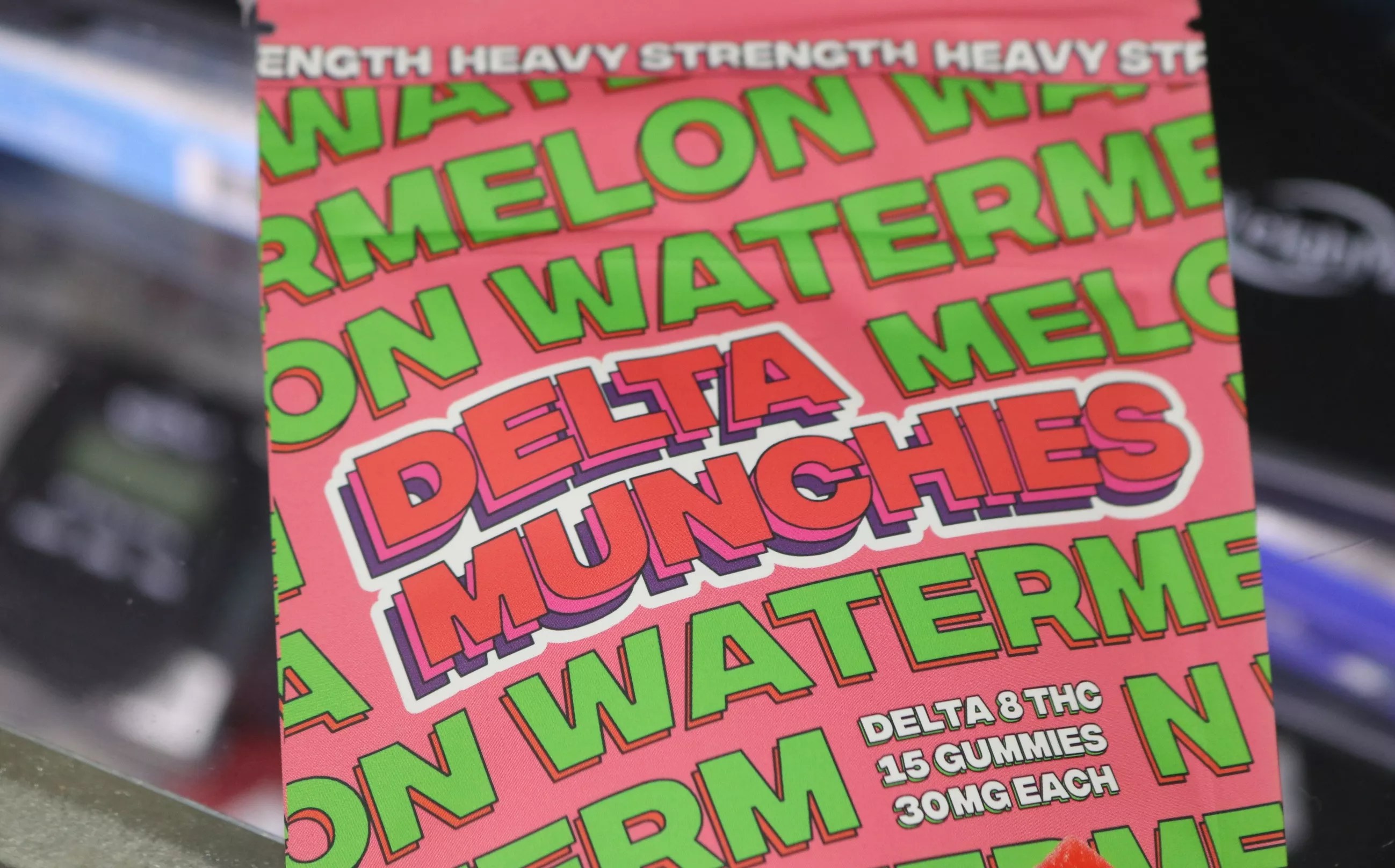
Elsa Olofsson/CBD Oracle

Audio By Carbonatix
A state task force has recommended that Colorado take a stronger enforcement approach toward intoxicating products derived from hemp, but stopped short of going after CBD.
Created during last year’s legislative session by Senate Bill 22-205, the twenty-person task force was responsible for crafting a response to a surprise development stemming from hemp’s federal legalization in 2018.
Although hemp and marijuana are both cannabis plants, they differ in one key way: THC. If a hemp plant’s flowers or a final hemp product tests above 0.3 percent THC, it is considered marijuana by the federal government.
A variety of hemp plants have been selectively bred to produce low amounts of THC and high amounts of CBD, a non-intoxicating cannabinoid with medical benefits. However, CBD can be easily modified into different isomers of THC, including forms that aren’t banned by the federal government. That loophole has led to “newer” forms of THC like Delta-8, Delta-9 and Delta-10 THC that are technically derived from hemp.
Modified hemp cannabinoids have created a burgeoning market for gummies and vaporizers that can provide intoxicating effects similar to those of marijuana products sold at dispensaries. These hemp products are offered both online and at more traditional retailers, such as gas stations or smoke shops. Although Colorado bans the sale of modified hemp cannabinoids in dispensaries, federal and state enforcement of the sale of such products in other locations has been relatively lax, which has created a cash cow for some hemp businesses.
Factions of the hemp industry have advocated allowing intoxicating hemp products to be sold both inside and outside of the dispensary space, while the marijuana industry – bound by a much more extensive set of rules than hemp because of federal prohibition – wants similar rules or outright bans for modified cannabinoids.
Comprised of marijuana and hemp industry members, public health officials and cannabis regulators, the task force recently reported to state lawmakers about the current science and regulatory structures surrounding intoxicating hemp, providing regulatory and statutory recommendations. According to the task force report, ten different hemp extractions that the task force considers non-intoxicating shouldn’t fall under Colorado’s marijuana regulations, but at least another 26 modified and synthesized variants of THC should not be sold in Colorado.
The ten cannabinoids considered non-intoxicatin are cannabidiol (CBD), tetrahydrocannabivarin (THCV), cannabichromene (CBC), cannabicitran (CBT), cannabicyclol (CBL), cannabielsoin (CBE), cannabigerol (CBG), cannabidivarin (CBDV) and cannabinol (CBN), as well as multi-compound hemp extractions, or broad and full spectrum extracts.
The task force essentially considers all forms of hemp-derived THC as intoxicating, and recommends that “these cannabinoids shall not be allowed to be manufactured within Colorado or incorporated into Industrial Hemp Products for sale within Colorado” unless they are licensed and approved by the state Marijuana Enforcement Division. However, the report suggested an exception for Colorado businesses that ship hemp-derived products to other states with different laws, such as Minnesota, where hemp-derived edibles can contain up to 5 milligrams of THC.
The report suggested that hemp products containing up to 2.5 milligrams of THC per serving could also be allowed for sale at stores other than dispensaries in Colorado, but only if state regulators mandate that other non-intoxicating cannabinoids, such as CBD, are included at a ratio that renders the product non-intoxicating. A manufacturer should also be able to sell hemp-derived THC products in Colorado if the business can prove that a product with more than 2.5 THC per serving isn’t intoxicating under FDA-approved standards.
“Notably, full-spectrum hemp products will often contain at least 1.0 – 2.0 mg THC per serving, but are rendered non-intoxicating given the ratio considerations noted below,” the report reads. A CBD to THC ratio of 15 to 1 “may be an appropriate standard,” according to the task force.
“Hemp products that contain only non-intoxicating compounds are not subject to these limitations. It is also important to note that the definition of THC includes all of its isomers. Hemp companies will also be able to use other potentially intoxicating compounds if they can prove that those products are considered non-intoxicating by review of the standing scientific committee,” the report adds.
Task force recommendations will be used as reference points for potential legislation or new rules from the MED, but there were plenty of dissenting opinions from members. Marijuana industry representatives Truman Bradley, Brian Higgins and Bruce Nassau argue that 2.5 milligrams of THC is too large a dosage for hemp products that aren’t intended to get users high.
“While we stand in support of virtually all of the hemp intoxicant recommendations from the SB22-205 Work Group, we strongly oppose the work group recommendation that a maximum dosage per unit of up to 2.5 mg of THC be the legal limit for ‘non-intoxicating’ THC products. A serving size of 2.5mg threatens public safety unless sold within the regulated marijuana space, which has developed robust public safety regulations and protocols in regulating the sale of THC to the public,” the three wrote in their dissension.
According to Alan Lewis, government and policy affairs for Colorado-based Natural Grocers, many of these recommendations will probably have to be revisited regardless of any laws or rules crafted this year.
“Previously unknown sources of cannabinoids, created using technologies such as gene editing of seeds, crops, soil, and microorganisms, are already changing the regulatory landscape and economics of hemp and cannabis. Most of what the current Task Force is solving for will have to be addressed again in the future,” Lewis writes in the report.
Also included in the recommendations is a new state cannabis science committee that would “assist [state] agencies in the ongoing evaluation of scientific data and research related to cannabinoids investigation and the evaluation of cannabinoids for their safety profiles and intoxicating potential, including the appropriate classification of cannabinoids.”
No bills regarding intoxicating hemp have been introduced at the state legislature yet, according to the General Assembly’s bill tracker.